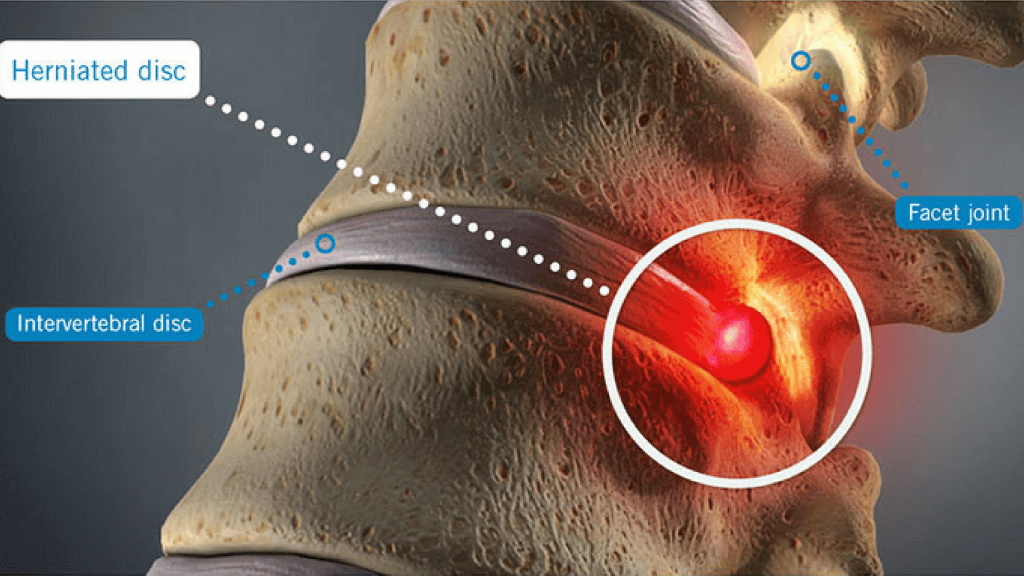When you feel back pain, you are experiencing the symptom of many different spinal issues.
This content was medically reviewed by Baher S. Yanni, MD, on January 26th, 2017.
Finding out which one is going on makes effective treatment possible. One of the most common causes of back pain is a herniated disc. This condition shows up in the lumber (lower spine) the most. It doesn’t just cause back pain; it can cause leg pain as well.
The discs in the spine are tough combinations of fiber and a gel-like substance called the nucleus pulposus. There is one disc between each vertebrae, and each works as a shock absorber. When stress is put on the disc, the outer layer can crack, allowing the gel-like inside to push out. It usually takes something like an accident or trauma to herniate a disk. Once the disk is bulging out, it puts pressure on the spinal cord. The gel irritates the nerves, which makes things worse and can make the pain go from your back all the way down to your feet.
Symptoms
Is your back pain indicating a herniated disc? A professional will be able to determine that for sure, because symptoms for different conditions overlap. However, here are the most common symptoms you’ll feel when you have a herniated disc:
- Sciatica – This is a numbness, weakness, pain, or burning sensation. You’ll feel it in your buttock and down the your leg, sometimes all the way down to your foot. The discomfort follows the sciatic nerve, which runs down each leg.
- Weakness – you’ll experience weakness in one or more of your legs. You may even lose leg function.
- Lower back pain – this pain can be sharp or dull. Physical activity like bending, lifting, and coughing will make it worse.
- Loss of bladder or bowel control – this is a serious symptom, and if you experience it, get medical help right away. It doesn’t matter if you don’t have any other symptoms.
Diagnosis
There is a general process that all good specialists follow when determining just what is going on in a patient’s spine. If your specialist doesn’t follow this procedure, you probably need a new one.
-
Assess your medical history
- A good specialist will make sure he or she understands the treatment and symptoms you’ve had in the past. He or she will make sure to know if you’ve been injured and what care you received.
-
Careful physical examination
- After understanding your medical past, a good specialist will evaluate your spine. This will include your spine’s range of motion and physical locations of pain.
-
Imaging and tests
- In order to confidently diagnose the herniated disc, a good specialist will take a look inside your spine with an x-ray, MRI, or CT scan.
Once a diagnosis is reached, it’s time for treatment – and relief. At the Spine INA, we provide cutting-edge solutions to back problems. including epidural steroid injection. Read our main page on herniated discs for treatment options and contact us today for an appointment!










Leave a Reply